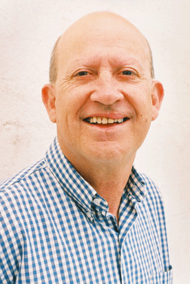INTERVIEW: Writer John Rainford discusses Consuming Pleasures his history of drug consumption

Tell us about Consuming Pleasures
Consuming Pleasures is a book about the history and politics of drug use. The broader political issue that it investigates is the rationale for drug prohibition.
The book begins by deconstructing the famous mid-19th century epigram, religion is the opium of the people, and uses this technique as a method of contrasting the drug market at that time with the market of today. This opens up the key themes of the book – the way in which the market has developed and the political forces that have shaped its transition.
What inspired you to write Consuming Pleasures?
One of my earliest childhood memories is of my father pointing out to me the houses in Liverpool, England where Chinese residents smoked opium. For some reason it stayed with me and a decade or so later I became familiar with the expression, religion is the opium of the people, and began to speculate how it might have been understood when it was first written in 1844.
About six years ago, having observed that the increased use of heroin in various parts of Australia seemed to accompany rising unemployment, I began a research project to examine the link between the two, as well as the level of corruption that allowed the trade to flourish. It became clear, to me at least, that the level of corruption associated with the supply and distribution of all illicit drugs was a function of the way in which illicit markets operate, underpinned by strong demand. The research also showed that while rising unemployment can explain some of the trends in illicit drug use, a direct link between the two was much more difficult to establish. Drug use has its own history and all of these things eventually came together with Consuming Pleasures.
What kind of research did you undertake?
I spent a great deal of time in libraries around the country, most notably in the State Library of Western Australia. Ideas about how the narrative might unfold shaped the research on particular aspects of the book.
An interesting aspect of the research was interviewing a number of recreational drug users. I talked to them about their preferred illicit substances, their usage patterns, price and availability. The sample was small but the measurable results such as price, quality etc., were consistent with the more rigorous and authoritative surveys. I understood more clearly the reach of the illicit market and its scale as a result of these interviews.
Those interviewed were also very aware of the effects of the drugs that they were taking – what suited them and what didn’t – and the need to control things accordingly. They didn’t much consider how they might make the market work to their benefit as consumers, but not surprisingly they didn’t favour prohibition.
How do you think the medical profession and the pharmaceutical industry are likely to react to Consuming Pleasures?
I would be surprised if they cavilled with the history of their respective profession and industry. As to the implication that they should consider changing their ways, the medical profession is divided on the issue. While this is unlikely to change in the short term, I think it is important to bear in mind that some of the most trenchant criticism of the profession comes from within its own ranks. Few in the pharmaceutical industry are likely to be as candid as the senior executive who admitted that most prescription drugs do not work on half the patients who take them. The challenge to both comes from consumers who increasingly express their dissatisfaction with existing arrangements by turning to alternatives.
What advice would you give emerging authors hoping to write non-fiction?
Ideas as to what might constitute an interesting topic for readers are obviously of crucial importance. Thereafter it is the hard slog of disciplined research. Being objective isn’t always easy and what helps me is getting together a small group of readers who are prepared to call a spade a shovel and whack you over the head with it when they think it appropriate.


